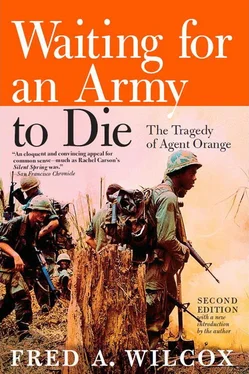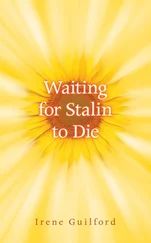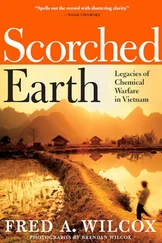For example, according to the Department of Defense, combat troops did not enter defoliated zones until six weeks after Air Force pilots destroyed the trees. By that time, residue from the herbicide spray would have broken down, limiting combat soldiers’ exposure to toxic chemicals.
“Six weeks?” scoffed combat veterans, “Are you kidding me? More like six hours. Six minutes. What were we going to do, sit back and wait for the enemy to book? Drank water and ate food sprayed with Agent Orange. Slept on ground soaked with that shit. Got sprayed directly. Soaking wet. The government is lying. They can lie all they want but we know better. They weren’t there. We were. They’re not fooling anyone but themselves.”
Ex-soldiers who visited Veterans Administration hospitals complaining of skin rashes, liver and kidney problems, heart disease, numbness of the hands and feet, memory loss, and other illnesses were accused of being alcoholics, drug addicts, malingerers and scam artists. The VA thought these young veterans were just angry about the war; they merely wanted attention, and they were out to extort money from the government. TCDD-dioxin, the contaminant in Agent Orange, might harm laboratory animals, but there was no evidence that exposure to this chemical caused cancer and other illnesses in human beings.
The government did concede that some veterans, though not many, might have been briefly exposed to Agent Orange; however, this did not mean that anyone was ill, or ever would get sick from this exposure.
Vietnam veterans and their families invited me into their homes. They provided me with military documents, scientific studies, letters, photographs, articles and books. I listened to their pain, and their anger at the government they served and no longer trusted. Young couples were frightened. Should they risk having children, knowing that their offspring might be seriously deformed? Where could they turn for tests that might help them decide what to do?
Veterans ridiculed the VA’s “Agent Orange physical,” calling it an insult to their intelligence. They talked about undergoing painful biopsies, only to learn after waiting for weeks that the fatty tissue taken from their bodies had gone missing. Working-class men and women, lacking formal education, became experts on the effects of toxic chemicals on animals and human beings. Their kitchen and dining room tables were stacked with materials that, normally, only those with PhDs in science or medical degrees, might read. They wanted their brothers in arms, and the women who tended them in Mash units, to know the truth about Agent Orange/dioxin.
In the beginning, I found it hard to understand why the government would treat Vietnam veterans with such disrespect and downright contempt. Was the Veterans Administration afraid that the government would go bankrupt treating victims of Agent Orange? Were officials waiting until there were more studies to support a direct link between Agent Orange exposure and human illnesses? It seemed to me that what veterans and their families were asking for—help with medical bills, scientific studies, competent and compassionate doctors at VA hospitals—was perfectly reasonable. Veterans talked about a cover up. People at the highest levels were lying. The government and the chemical companies were trying to wear Agent Orange victims down.
In every home, café, bar, hearing room, where I met veterans, I asked them the same question: “Why do you think the government is treating you this way?” The answer never varied.
“Because,” they replied, “the government is just waiting for us all to die.”
In the early morning hours of May 7, 1984, lawyers representing Vietnam veterans and their families agreed to a $180 million dollar out-of-court settlement with the chemical manufacturers of Agent Orange. Dow chemical, Monsanto, et al. won a monumental battle with US veterans and high-powered attorneys from prestigious law firms. They demonstrated that the earth’s water, food, and air supplies belong not to the billions of people who inhabit this planet, but to multi-national corporations that inundate the world’s environment with cancer causing chemicals.
In June, 1985, Jack Weinstein, the presiding judge in the Agent Orange case, commenced a series of “Fairness Hearings” to ascertain, he said, how Vietnam veterans felt about the out-of-court settlement. The courtroom was packed with lawyers, Vietnam veterans and their wives, and media from around the world. Victor Yannacone, the attorney who initiated the Agent Orange class action lawsuit against Dow, et al. on January 8, 1979, “on behalf of all those so unfortunate as to have been and now to be situated at risk, not only during this generation but during generations to come,” attended the hearings. Flamboyant, brilliant and hot-tempered, Yannacone had dedicated years of his life to helping veterans. They liked Victor and most important they trusted him; this might explain why His Honor cut him off mid-sentence when he tried to testify. I also attempted to testify, but didn’t get far before the judge interrupted, informing me that if I wanted to make a real difference I should go home and run for Congress.
The Fairness Hearings were a sleight of hand designed to convince veterans that they had a voice in the out-of-court settlement. Outside the courtroom, veterans wearing orange “Sprayed and Betrayed” tee shirts denounced the agreement their lawyers made with the chemical companies, calling it a sellout, a swindle and an insult.
A totally disabled Vietnam veteran would receive $12,000, but this would be spread out over a period of ten years and would not be free and clear. Disabled veterans receiving these meager Agent Orange payments might become ineligible for food stamps, public assistance and government pensions. Widows of Vietnam veterans who could prove their husbands died from Agent Orange exposure would receive $3,700, while the wives and children of Vietnam veterans were not included in the distribution plan.
Financiers who helped provide money for the plaintiffs’ lawyers to work on the case would get back, as a group, $750,000. An attorney who’d been a “passive investor” received $1,700 an hour for his services. One law firm collected $1,347,501, another $1,889,012. The court awarded $13,223,702 in attorney fees.
In this case, “the rule of law” clearly meant “the power of money.”
On May 5, 1990, Admiral Elmo R. Zumwalt delivered a copy of his explosive classified report, “On the Association Between Adverse Health Effects and Exposure to Agent Orange,” to the Department of Veterans Affairs (formerly the Veterans Administration). In charge of all naval operations in the southern half of Vietnam, Admiral Zumwalt issued orders to use Agent Orange along the banks of the Mekong Delta’s canals and rivers. His son, Elmo Zumwalt III, served on a swift boat during the war, plying the waters in search of Viet Cong, swimming in canals contaminated with Agent Orange, eating food and drinking water poisoned by dioxin. Lieutenant Zumwalt returned home from the war, married, and started a family. His son was born with severe learning disabilities, and at the age of thirty-six Elmo was diagnosed with cancer of the lymphatic system. After a long courageous battle, he died at the age of forty-two.
Admiral Zumwalt spent two years researching and writing a report that excoriates the Veterans Administration, criticizes the Center for Disease Control and dismisses the Air Force “Ranch Hand Study.” He charges that the government and the chemical companies with conspiring to deny Vietnam veterans much needed help for their war-related illnesses. Scientific studies on the health effects of Agent Orange, he writes, were flawed and even falsified. Researchers used bogus statistics to deny any association between exposure to Agent Orange and human illness. Contrary to early reports, the rate of birth defects among children fathered by the men who flew “Ranch Hand” missions in Vietnam was double that of the control group. Moreover, Ranch Hand pilots showed a significant increase in skin cancers “unrelated to overexposure to the sun as originally suggested in the 1984 report.” 1
Читать дальше











